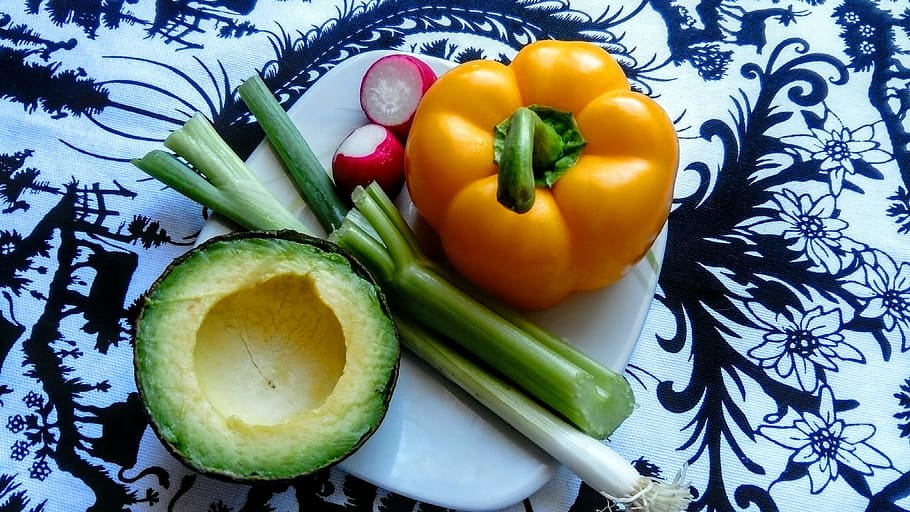Why Do We Still Have Food Taboos? – 5 Most Common Misconceptions Explained
There’s so much conflicting information online and in other media outlets that it’s often hard to know what to believe. You can find the same food portrayed as a villain one day and touted as essential the next.
So, how can you understand what’s truly healthy? Is it even possible to know? We’ll share our research to help clear up some common misconceptions.
Cannabis Products
A lot of people are still very hesitant to try anything involving cannabinoids. The 2018 U.S. Farm Bill legalized industrial hemp, which contains less than 0.3 percent THC.
With such low levels of the substance that causes a marijuana high, cannabidiol (CBD) products carry little risk of intoxication. However, it may take a while before the general population accepts this plant for medicinal use. Appropriate education can help make this happen sooner.
CBD oil has therapeutic properties backed by research. It’s effective at treating pain and reducing anxiety and depression. Cannabidiol has many other less-studied potential benefits, as well.
Food supplements containing CBD come in the form of syrup or capsules. There are even cannabidiol gummy candies and chewing gum, like the ones you can find at the Relaxation Company.
Fats
With the increase in obesity in the U.S. and worldwide, many are trying to lose weight. For decades, fats took the blame for the fact that people were getting bigger. However, this isn’t a fair evaluation of the situation.
Limiting your intake of oily substances can be a healthy choice, but it can be dangerous to consume too few lipids. Omega-3 and omega-6 fatty acids are critical to human health.
Is saturated fat the leading cause of cardiovascular disease? Research has shown that this, too, is a myth.
Trans fat is the only kind that studies clearly find to be dangerous to our health. Staying away from partially hydrogenated oils can help keep your heart healthier.
Carbs
Fats aren’t the only nutritional group with a bad reputation. Many people shun carbohydrates, believing they’re the culprit for weight gain.
Some suggest using a food’s glycemic index to determine whether it’s healthy or not. However, available research doesn’t show much difference in metabolic factors based on these numbers.
Eating fewer carbs doesn’t always result in better glycemic control, even for people with diabetes. It also isn’t clear that a diet high in carbohydrates causes obesity.
Salt
Some people are afraid of sodium, as well. Too much salt can indeed cause high blood pressure and kidney damage. Research also shows a high intake of this substance can be a factor in cognitive decline.
Yet salt is an essential mineral that’s critical for your health. Your body needs some sodium to function well. Potassium is also crucial, so it’s necessary to balance your consumption of the two minerals, not excluding either of them.
Residents of many developed countries consume excessive amounts of processed foods high in sodium. So, it’s a little bit hard to tell whether health problems stem from the exaggerated salt intake. Perhaps it’s the other ingredients in the processed food, too.
Regardless, it’s clear that salt is essential. You depend on it to live healthily. Balance is critical here, as both too little and too much sodium can increase the risk of heart disease.
Cholesterol
People are increasingly concerned about their cholesterol levels. In the midst of all this, egg yolks often get a bad reputation.
Foods with high cholesterol content can indeed increase LDL levels. However, the effect tends to be negligible.
Research has failed to show a link between eating eggs and high cholesterol. This phenomenon may occur because micronutrients in the yolk interfere with the absorption of the substance.
If you love eggs but worry about eating them, fret no more. Consume them in moderation, and you should be just fine.
Conclusion
It can be complicated to understand the effects of certain foods on our bodies. Many people wonder about cannabis products, fats, carbs, salt, and cholesterol. The truth is that CBD oil can make a big difference in your physical and mental health.
Fats and carbs are essential nutrients, and a greater intake doesn’t necessarily correlate with weight gain. Some salt is critical to our well-being, while high-cholesterol foods don’t necessarily raise levels of the substance in our bodies. In short, you can eat almost anything as long as you practice moderation.
Lilly Light


